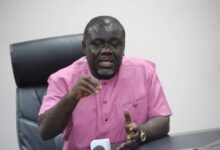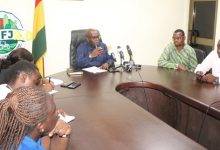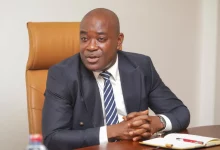At Kyebi in the East Akim Municipality of the Eastern Region to participate in the celebration of the Ohum festival cum homecoming of the chiefs and people of Akyem Abuakwa on Saturday, the Vice President, Dr Mahammudu Bawumia, called on traditional rulers across the country to help rekindle the spirit of volunteerism among Ghanaians to help deal with filth and pollution in the country.
He said communal labour and volunteerism in time past proved to be effective avenues used by chiefs and local authorities to deal with issues of filth in the neighbourhoods, but the noble spirit for such activities seems to have been lost among Ghanaians these days.
Dr Bawumia was forthright in his appeal for rekindling of the spirit of communal labour and volunteerism, but too careful in his assertion that “the spirit seems to be lost among Ghanaians”.
The truth is that the spirit is lost and so the whole nation has to diagnose how that happened.
Before the Europeans came to the country for the first time in 1471, the societies that have now come together as the sovereign Ghana such as the Akans, Ewes, Gas and Sissalashad their own traditional leaders.
These leaders included the chiefs, clan or family heads, council of elders and leaders of the Asafo groups as it pertained among the Akans, with the chiefs being on top of the power and authority hierarchy.
These people made sure there was law and order and security in the communities.
Even though the colonists saw some so-called excesses in the traditional system of ruling the people and wanted them addressed, they recognized the importance of the system for their own good.
Therefore, the colonists adopted a system of indirect rule by which the day-to-day government and administration of areas, both small and large, were left in the hands of traditional rulers, which enhanced their prestige and stability and protection as the colonists beefed up security of communities.
With time, the colonists used subtle ways to gain full control of the people, including the chiefs themselves.
For instance, then named the Gold Coast, the country was made a British colony from 1821 until its independence in 1957 when it was named Ghana.
It was within the colonised period that the British started eroding the power of the chiefs and, for that matter, those of the traditional leaders of this country.
Chiefs have now become just informal administrators and points of liaison between local communities and state institutions, with a lot of their power of discretion taken away from them.
Upon independence, the local politicians failed to restore some of the powers of the chiefs that can help them to bite, hence even though the constitution of the country seems to recognize the chiefs as people of authority, in reality this is not the case.
Today, the chief’s power more or less depends on who is in power at the national level.
The politicians of today allude to the sanctity of traditional authority yet like the colonists, they help in protecting, undermining or installing chiefs.
This attitude causes disaffection for chiefs, and over time most chiefs have lost respect of the people.
Besides, with justice and human rights being twisted all over the place, most people tend to ignore the orders of the chiefs and other traditional leaders.
Some people of today challenge the authority of the chief and so can ignore him because they know that the chief’s authority cannot lead to prosecution.
Fortunately, chiefs still occupy some pride of place in society so the state authority must clothe them with power to handle certain issues like sanitation, environmental degradation and town planning before they can have the power to rekindle the spirit of communalism and volunteerism in the country to address issues of filth and environmental sanitation.




